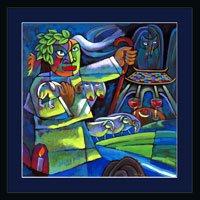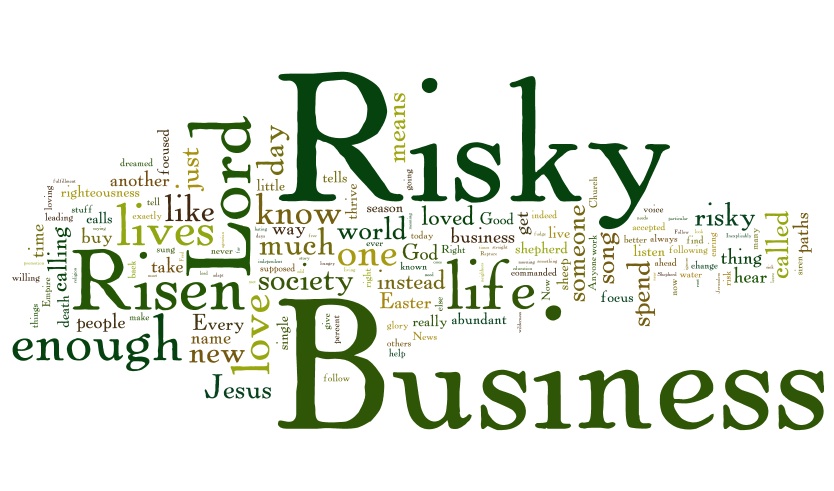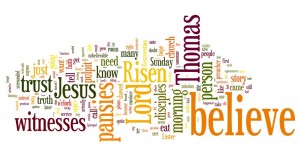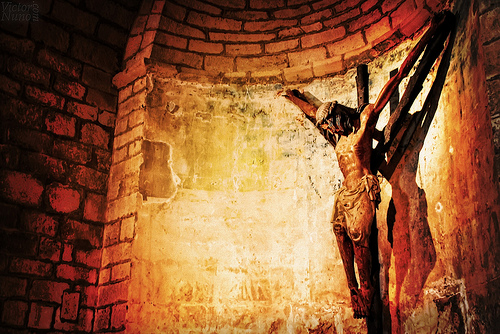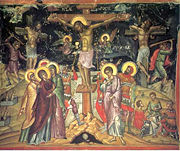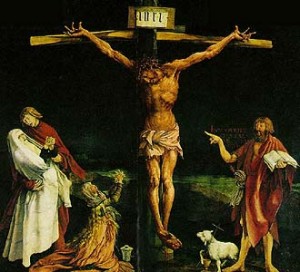(Written for Episcopal Cafe)
Tis the season for graduations, including those at seminaries across the United States. Within a matter of a few short weeks, Christian churches will be flooded with hundreds of new graduates, most newly ordained, to serve as ministers.
It should be a time of great celebration … unless, of course, you read Jerry Bowyer on Forbes.com. According to Mr. Bowyer, all these graduations, all these newly ordained clergy, are not a matter of rejoicing but of sorrow.
Mr. Bowyer claims, in columns published on April 20 and May 11, that seminary is, basically, a waste of time. Clergy are not trained properly in seminary, he says. Among the claims he makes (some of which I and many others found astounding) is that learning about such topics as Church History and Theology does nothing to prepare a person for leading a congregation.
Really?
Why, just the other day, I had to call upon Church History, Litugrics and Theology to talk with a congregation about why they might want to consider moving their altar away from the wall, and having the priest actually face the congregation. We talked about why the altar was up against the wall in the first place, about the importance of including the people in the celebration, the fact that Jesus never celebrated a “Eucharist” as we know it, and that at the Last Supper, he sat (actually, he most likely reclined) around a table, passing the bread and cup around. What does that mean to you theologically? I asked the people.
That same day, I drew upon my theological training to talk about why a congregation might want to consider changing its building plans, making handicapped access the priority, and leaving a new office to a latter date. How hospitable is it, I wondered, to make handicapped people wait years more to get into this church, just so a new office could be added? If you were in a wheelchair, would you like to be told you have to go to the back door to get in? What message are you trying to send?
I use my education in pastoral and systematic theology nearly every day of my life, when I am working, when I am with family and friends, and even when I am alone. I use my studies of Scriptures for my preaching, my teaching, my pastoral care and my personal spiritual time. My education in Christian Ethics informs almost every decision I make. Christian Education classes taught me about working with children and youth, and helped me learn how to preach and teach at all levels.
In other words, I use my seminary education every day of my life. Yet Mr. Bowyer claims that I could have learned all of it on-line, and that that would have been sufficient.
Mr. Bowyer laments the fact that seminary is a three-year graduate program, and focuses on how much it costs. (He also writes as though all married seminarians are male, “with a wife and children in tether,” which makes me wonder which seminaries he has visited, where he attended and where he has been teaching. In his second column, he harshly castigated those who called him out on this, but that’s not my point here …)
 Yes, seminary does take three years. Yes, it is a graduate-level institution in many churches (but not all). Yes, there is a lot to learn. You see, most of us who go to seminary do not have the prerequisites all taken care of. Some graduate programs require prerequisites; most seminaries do not.
Yes, seminary does take three years. Yes, it is a graduate-level institution in many churches (but not all). Yes, there is a lot to learn. You see, most of us who go to seminary do not have the prerequisites all taken care of. Some graduate programs require prerequisites; most seminaries do not.
And there is another reason for three years of schooling: formation. Asking a person to go from being who they have been to being an ordained person, living a life under vows, is not something that should be taken lightly. And many of us needed that time to leave behind those portions of our old lives so that we could be the person God is calling us to be now.
Mr. Bowyer also tells one tale – one tale! – of a man who somehow made it through both Bible College and seminary without, apparently, ever having preached in public … anywhere. After ordination, this person found he could not preach. He simply could … not … preach. His life went to hell in a hand basket, Mr. Bowyer says.
Um? Really?
This man went through an accredited seminary and somehow, he never once was asked, or even forced, to preach? And because of this one man’s experience, Mr. Bowyer believes that seminaries as a whole don’t do their jobs?
Really?
I took a fully year of homiletics in seminary. I preached at my field education parishes throughout the year, and at my summer internship. I preached in classes. I even was blessed to preach, one time, as a senior, in my seminary’s chapel. Was I nervous? Good Lord, yes! Sixteen years later, with literally hundreds of sermons under my belt, I still get nervous. I get so nervous I get dry-mouthed, and have to tuck an Altoid in my mouth before I can preach. Nerves are part of the job: After all, we preachers are attempting to say something intelligent about the Word of God! If that doesn’t make you nervous, I’m not certain what will. (Actually, if it doesn’t make you nervous, there might be an ego issue running here.) I didn’t have to wait until graduation and ordination to find out whether I was suited to the pulpit or not.
 Mr. Bowyer also claims that many mainline denominations, including The Episcopal Church, over the years have followed “leftie fads” and are guilty of “indulging in ideological tourism.” Apparently, going to seminary means you become some kind of radical leftie, according to his columns. I don’t know what I’m supposed to think about this, but his comments rather remind me of those made by others who like to throw stones at churches that engage in social justice issues.
Mr. Bowyer also claims that many mainline denominations, including The Episcopal Church, over the years have followed “leftie fads” and are guilty of “indulging in ideological tourism.” Apparently, going to seminary means you become some kind of radical leftie, according to his columns. I don’t know what I’m supposed to think about this, but his comments rather remind me of those made by others who like to throw stones at churches that engage in social justice issues.
The only point on which Mr. Bowyer and I agree is the cost of the seminary education. It’s high – too high, in many cases. And far too many students leave seminary with huge amounts of debt, then are hired for jobs that pay well below any national average for holders of graduate degrees. Me? I never incurred debt in seminary. Of course, I received dozens of scholarships and grants, because I worked very hard to get even the smallest gifts (you want to give me a $50 scholarship in exchange for me filling out some forms and writing an essay, I’m on it!). I also worked up to three jobs at a time – because I didn’t want any debt. I cobbled together the money any way I could, and still managed to graduate in three years. So it’s not as though graduating from seminary without debt is impossible. It’s simply very, very hard.
Mr. Bowyer claims that technology is the solution, that we can find almost all of the courses on-line, and that what can’t be taught on-line can be taught through apprenticeships to experienced ministers. I can point out many problems, including the potential for abuse, with that system, too.
Do our seminaries need to change, to adapt to new realities? Absolutely. Many seminaries over the years indeed have changed, and they continue to adapt. More part-timers are attending seminary now. Courses have been added, and others dropped, to reflect the new realities of our world. Any seminary that won’t change and adapt needs to re-examine its mission statement, and look again at the church for which it is preparing its graduates.
they continue to adapt. More part-timers are attending seminary now. Courses have been added, and others dropped, to reflect the new realities of our world. Any seminary that won’t change and adapt needs to re-examine its mission statement, and look again at the church for which it is preparing its graduates.
And do we need to do something about the cost of seminaries? Without a doubt. Ministers in general do not get paid a whole lot of money. Having enormous debt coming out of seminary limits their choices.
But trashing the whole system and claiming that what is taught in seminaries in not necessary, not good for the greater Church?
Absolutely not.
Mr. Bowyer might want to think again before he applies such sweeping generalities, because in this case, he’s missed the mark.
The Rev. Lauren R. Stanley is a priest of the Episcopal Diocese of Virginia, and a proud graduate of Virginia Theological Seminary, Class of 1997. This column ran on 19 May 2011 on EpiscopalCafe.com.






